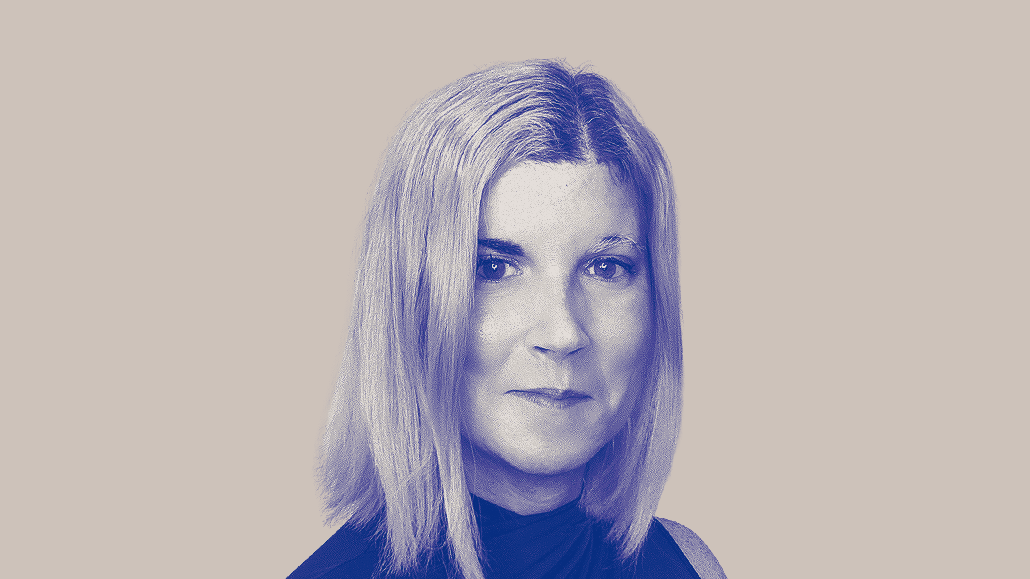Secure your place at the Digiday Media Buying Summit in Nashville, March 2-4
‘We need to get past talking about pronouns in bathrooms’: How Publicis Groupe is making a more gender-inclusive workplace

In November, Publicis Groupe rolled out an official set of guidelines for transgender employees, as part of its mission to become a more supportive employer — and more gender-inclusive. The 28-page resource, which is currently for the U.S. market, includes a glossary of key terms as well as a sample transition plan with future plans for additional content and workshops.
The guidelines are an effort from Publicis’ Égalité Business Resource Groupe [BRG], helmed by Jenn Renoe, a trans woman and trans community advocate. Digiday caught up with Renoe to talk about gender inclusivity, why we need to move past pronouns on bathroom doors and what the industry at large can learn from Publicis’ latest initiative.
This interview has been lightly edited for clarity.
Why was it important to have an official set of transgender guidelines?
I want to create a space that’s safe for anyone who is coming out. You’re constantly coming out, it feels like when you’re transgender. People talk about how scary it is to come out to family, but coming out to work is terrifying. Even though we live in a society where there was the recent Supreme Court ruling that you could not be discriminated against at work for being transgender, that doesn’t necessarily mean that protections are in place to ensure your safety and essentially your own self-care and mental health throughout the process. What I really love about these guidelines is that they offer that to anybody who is ready to make the step, live as their authentic self.
We’re always nervous to talk to people that are different from us because we’re always afraid of offending someone. Being able to help educate employees on ways to interact and engage with people who are different really helps. I’m someone who always approaches it [from] a place of, “There’s positive intent behind it.” People aren’t trying to be offensive. If we can approach it that way and use everything as a learning experience, it’s a really good opportunity to help drive change for the better.
Let’s back up. What are the guidelines?
The document itself has four primary sections. [There’s] guidance for our HR and talent professionals on how to engage with someone who comes to you as being transgender with a desire to transition at work. We try to set guidelines on how long a person can expect it to take from the time that they announce it to the time that we’re ready to make sure that everything is done. We also have a section that’s dedicated to managers because managers are very important in this process. We give the employee flexibility in how they want to alert the manager. One thing that’s very important is that a person’s transition is not one size fits all.
The third [part] of this guidance is for the transitioning employee. It sets standards, ideas and baselines for what they can expect throughout their process. We’re also working on the opportunity to pair with one of our members of the BRG to be an advocate for them through the process. It can be difficult and challenging, and it’s nice to know that you have someone within the community who has your back and is looking to advocate for you. The fourth part, which is critical, is guidance on travel. There are countries in the world where we may have agencies where a trans person cannot exist without the repercussion of illegality or the penalty of death. There are parts of the United States where it is unsafe for trans people to travel.
How does this tie into the conversation around the future of work?
We’re in the middle of what’s known as the Great Resignation. There are a ton of things that feed into this, but the fact of the matter is we’ve been able to work from home for so long that we haven’t had to code switch. We haven’t had to go into an office where we’ve had to present as somebody other than who we are. We can exist as ourselves. A big part of what we’re seeing from a community standpoint is when people have to go back into the office, they don’t want to have to code switch. So they’re looking for opportunities to go elsewhere, opportunities where they can live as their authentic selves. My hope is that work like this is changing things.
What should other agencies be doing?
I want to see other agencies adopt these. I want to see other companies across the country adopt these. This should be standard for every company. We need to get past talking about pronouns in bathrooms. That should be table stakes. We’re almost to 2022. We should be beyond that. We need to be talking about transition guidelines, inclusive healthcare and how to guarantee the rights of our transgender employees in the workplace.
More in Marketing

Future of Marketing Briefing: AI’s branding problem is why marketers keep it off the label
The reputational downside is clearer than the branding upside, which makes discretion the safer strategy.

While holdcos build ‘death stars of content,’ indie creative agencies take alternative routes
Indie agencies and the holding company sector were once bound together. The Super Bowl and WPP’s latest remodeling plans show they’re heading in different directions.

How Boll & Branch leverages AI for operational and creative tasks
Boll & Branch first and foremost uses AI to manage workflows across teams.








